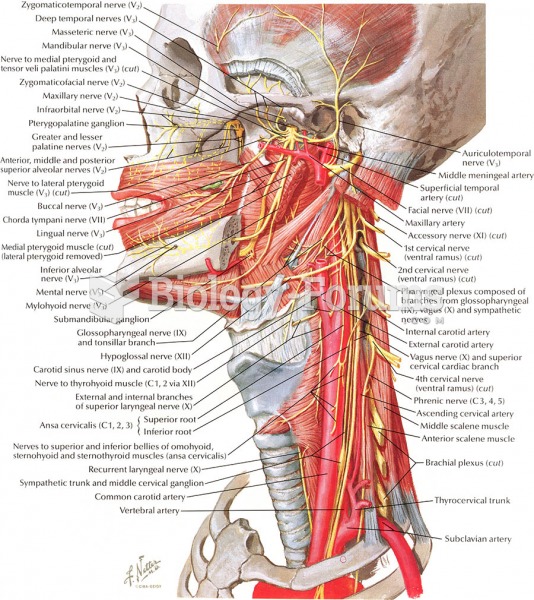|
|
|
Pope Sylvester II tried to introduce Arabic numbers into Europe between the years 999 and 1003, but their use did not catch on for a few more centuries, and Roman numerals continued to be the primary number system.
Between 1999 and 2012, American adults with high total cholesterol decreased from 18.3% to 12.9%
More than nineteen million Americans carry the factor V gene that causes blood clots, pulmonary embolism, and heart disease.
Nearly all drugs pass into human breast milk. How often a drug is taken influences the amount of drug that will pass into the milk. Medications taken 30 to 60 minutes before breastfeeding are likely to be at peak blood levels when the baby is nursing.
More than 4.4billion prescriptions were dispensed within the United States in 2016.







